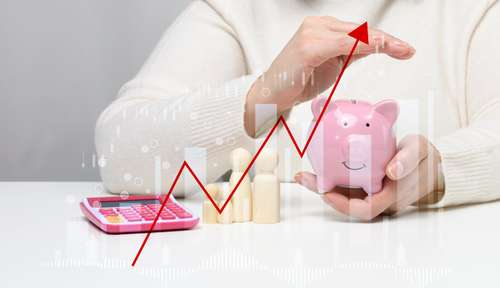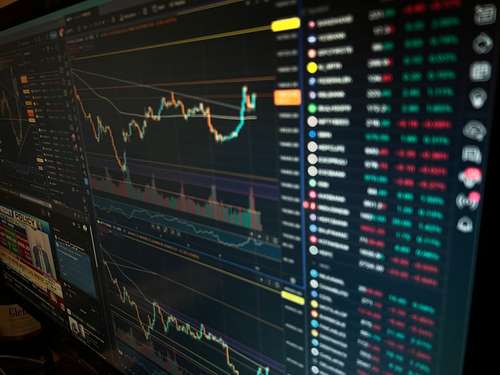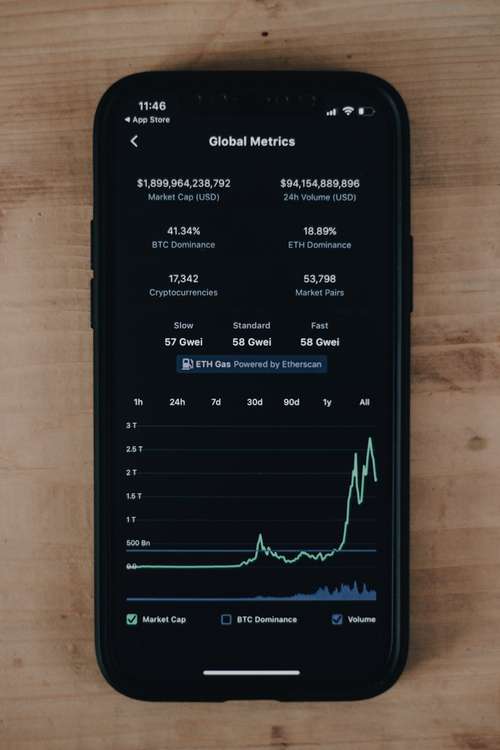Ever noticed how your weekly shopping bill keeps creeping up? Or how filling up your car costs a little more each time? That’s inflation at work.
Lately, prices have been rising faster than we’ve seen in the last twenty-five years. Conflicts abroad, like the one in Eastern Europe, have shaken up supply chains and disrupted energy supplies, pushing up the cost of food, fuel, and other everyday services.
But how does all this affect your investments? In this article, we’ll go into the impact of inflation on investment returns and what it means for your money.
A Closer Look at What Inflation Really Is
Inflation might sound complicated, but it’s simply about how the value of money changes over time.
Think of it like this: if you could buy a burger for $2 today and the yearly inflation rate is 10%, next year, that same burger would cost $2.20. The money in your pocket buys less, and that’s the inflation investment impact right there.
It’s not just about prices going up for one item; it’s when the overall cost of goods and services increases, reducing the purchasing power of your money.
True inflation happens when there’s more money circulating than there are goods available. It’s like having a room full of people all bidding on one limited item – prices are naturally bound to rise.
And when prices rise faster than your income or investment returns, it means your money doesn’t stretch as far. So, understanding inflation is crucial for investors.
To stay ahead, your investments need to grow at a rate that matches or beats inflation. Otherwise, the returns you think you’re making might not be as profitable when you account for the inflation investment impact.
What Causes Inflation?
Inflation mainly happens when demand outstrips supply – this is called demand-pull inflation. When more people want a product than there are available, prices go up.
Another cause is when the cost of producing goods and services rises, leading businesses to increase prices to maintain their profits. This is known as cost-push inflation.
Both of these factors drive up prices, reducing the purchasing power of your money and creating a ripple effect across the economy.
The Impact of Inflation on Investment Returns
Inflation affects the value of investments by eroding purchasing power and altering the returns you receive.
When inflation rises, the real return on investments can fall, impacting assets like equities, bonds, and cash differently.
Now, let’s consider some inflation investment impacts, so you can understand all these better and also make informed financial planning.
Equities
Inflation can be a double-edged sword for stocks. When the economy is strong and wages rise, consumers spend more, boosting company profits and benefiting shareholders with higher returns.
But when inflation climbs without wage growth, spending drops, leading to reduced company earnings and lower stock values.
Fixed Income
Bonds and other fixed-income investments suffer when inflation increases because their returns are fixed. If inflation outpaces the bond’s interest rate, the real value of the income declines.
For example, if a bond pays 3% but inflation is at 4%, the purchasing power of the interest you earn falls, leading to a negative real return.
Cash and Savings
Cash loses value during inflationary periods, as the same amount of money buys less over time. Even with interest-bearing accounts, if the rate doesn’t keep up with inflation, the real value of savings declines, making equities and bonds more viable options for outpacing inflation’s effects.
What Investors Can Do in the Face of Inflation
When inflation rises, it’s essential to adjust your investment strategy to minimize the inflation investment impact and protect your returns.
While a small amount of inflation can drive growth and wage increases if the economy is healthy, prolonged high inflation reduces purchasing power and devalues savings.
To combat these economic effects, focus on investing in high-quality companies that sell essential goods and services, as they tend to remain stable and profitable.
Also, safer options like government bonds can provide more security, as they typically offer better returns than holding cash.
The Bottom Line
By making these adjustments, you can build an investment strategy that helps you stay afloat even in the difficult, inflationary periods.
What impact does the government play in all of these? Sometimes, the government set up relief programs or policies to ease the effect of inflation on the people.




